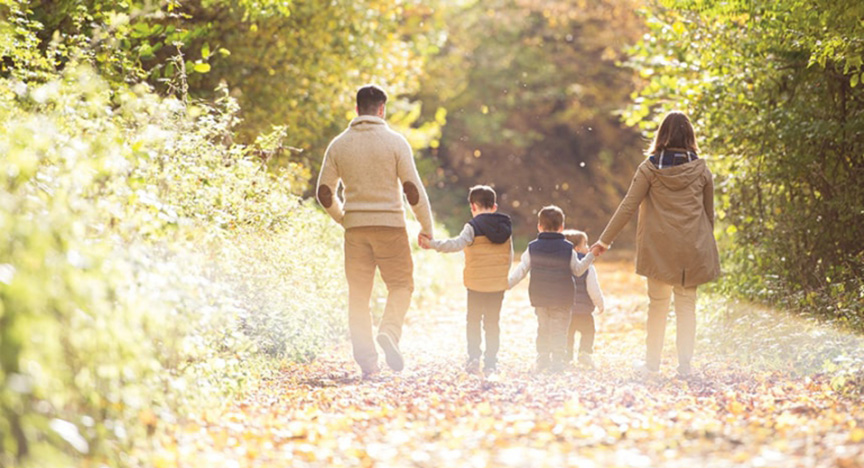
Completing cancer treatment can be both an exciting and concerning time for families. What you’ve gone through as a family has been tough; tougher than most people realise.
Finishing treatment successfully means a chance to get back to your ‘old’ life and be together as a family again without having to visit the hospital so much. It’s time for family life to return to ‘normal’; although this ‘normal’ will probably be different to before.
For example, there is reduced contact with your medical teams and less monitoring. It is normal to be concerned about whether the cancer will return but it’s important not to let this overwhelm you. If you do have ongoing concerns, talk to your doctor or healthcare team.
Finishing treatment is a time to celebrate. You can look back on how you managed such a difficult time in your lives; how brave and strong you have all been to have survived! Hopefully, the toughest days are behind you. Now you can get used to the next stage of your cancer experience as ‘cancer survivors’.
Returning to ‘normal’ routines
Often, family routines and activities have been interrupted by cancer treatment. The need for one parent to be at hospital with the child who had cancer often means their siblings have been cared for by other family members and things might have been done quite differently while you have been away. This can be a little confusing and frustrating at times.
On completing treatment and returning home, some families can find it difficult to re-establish a family routine or may need a change. It may be that you cannot just ‘fit’ back into your old routine. Things might seem different now. You may need to work at creating a new routine or a ‘new feeling of normal’. Family members can often find it difficult or strange being all together again after such a long time apart. Your child who had cancer might find it difficult to ‘share’ the parent who was with them during their treatment. Their brothers and sisters may also find it hard, feeling like the child who had cancer is getting ‘spoilt’ or ‘had all the attention’.
Sitting down and having a really open talk about how everyone feels may help. Everyone will have had a very different experience or story of what living with cancer was like for them.
Sometimes extended family members may think that once the cancer treatment is finished, your life will quickly return to the way it was. Family and friends may have good intentions but won’t really understand what you have been through. This can be tough.
If after a few weeks you are still finding things tough, ring your doctor or someone in your healthcare team. They will be able to help you or refer you to someone in your area who can offer more specialised help and support. Be gentle on yourself — you are still ‘normal’ and are doing ok.
Reconnecting with friends
Children with cancer often don’t get to see their friends, go to school, go to parties or play dates, or participate in sport while they are receiving treatment. When they are back home, it is very important to help your child reconnect with their friends. Your child may be excited about seeing their friends again but they might also be anxious. Listen to their worries and don’t minimise or dismiss them. Here are a few suggestions for helping your child through this time:
- Give your child’s friends a ring or talk to their parents about the cancer and what has happened while you have been away. Often others feel a little anxious and want to do the ‘right’ thing. Giving other people information and facts on what has happened and what you are hoping for now can help everyone act more normally and be more relaxed.
- If the thought of ringing people is too much try sending out an invite for a ‘welcome home’ lunch, BBQ or morning tea. As part of the invitation, include a note about the cancer, the treatment and your experiences and let others know how important friendships will be in your child’s recovery, as well as for mum, dad and siblings too.
- If they’re feeling confident enough, contact your child’s school and encourage their teacher to do a class project on ‘life with cancer’ inviting your child to come and be the guest speaker. This can help break the ice if it happens before their return to school.
- If your child is older and it’s appropriate, suggest they contact their friends first by email, Facebook or a similar method that’s safe but doesn’t need an instant face-to-face reply.
- Ask your child to invite one or two close friends to your house for a movie night or lunch as a way to ease everyone back into their friendships.
It is important to remember most children will be fine. It just takes time, patience and sometimes a bit of creativity.
Some families may benefit from getting in touch with the Queensland Youth Cancer Service, who advocate for and help navigate the needs of adolescents and young adults aged 15-25 dealing with cancer across their health, community and home environments.